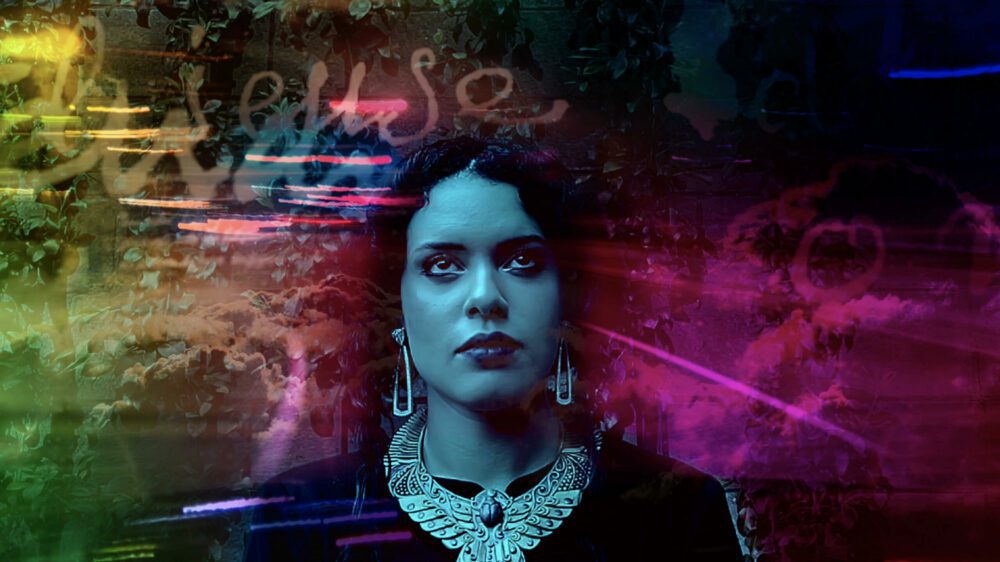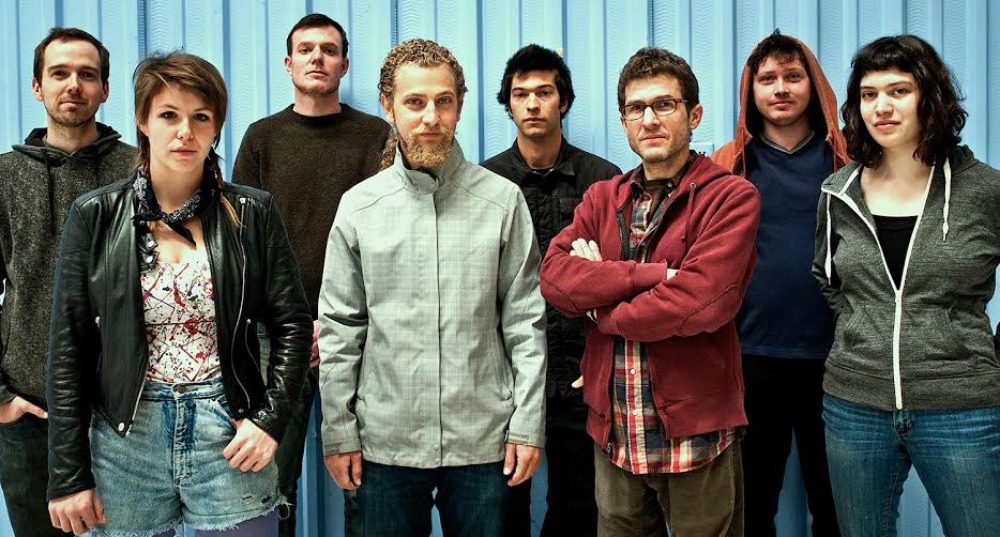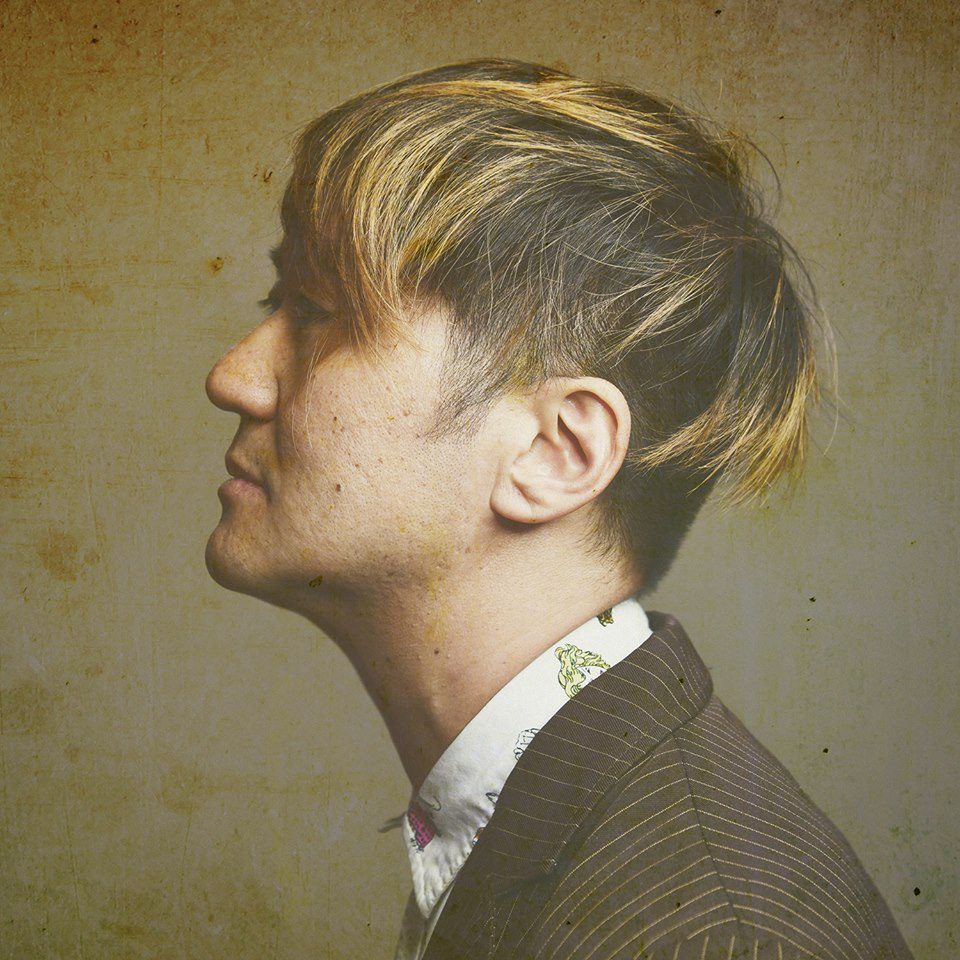Humans Unearth Unreleased Track “Let Go” Like a Polaroid from Their Past
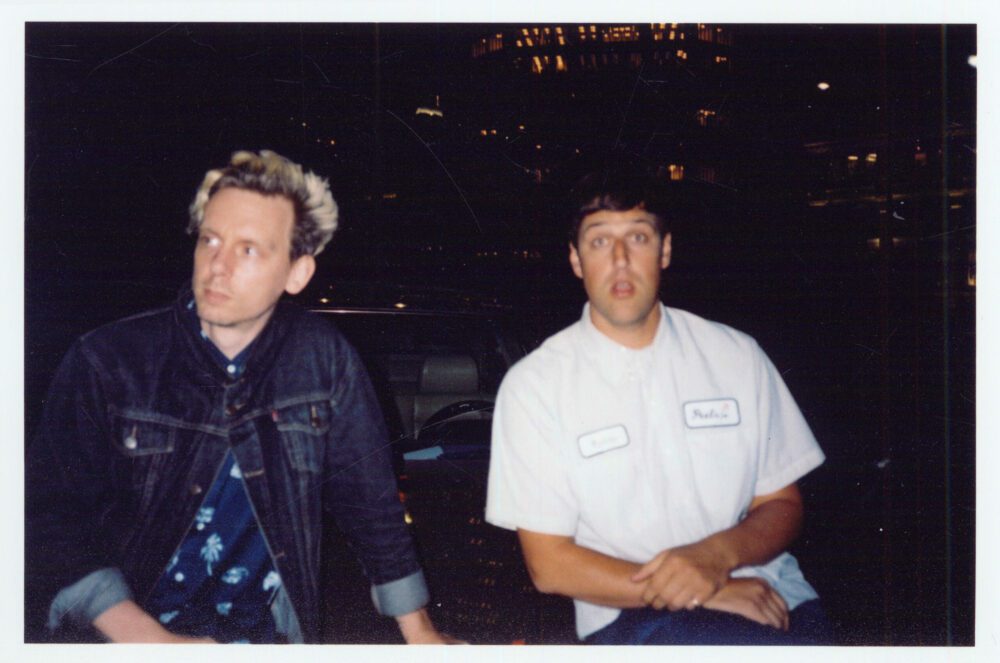
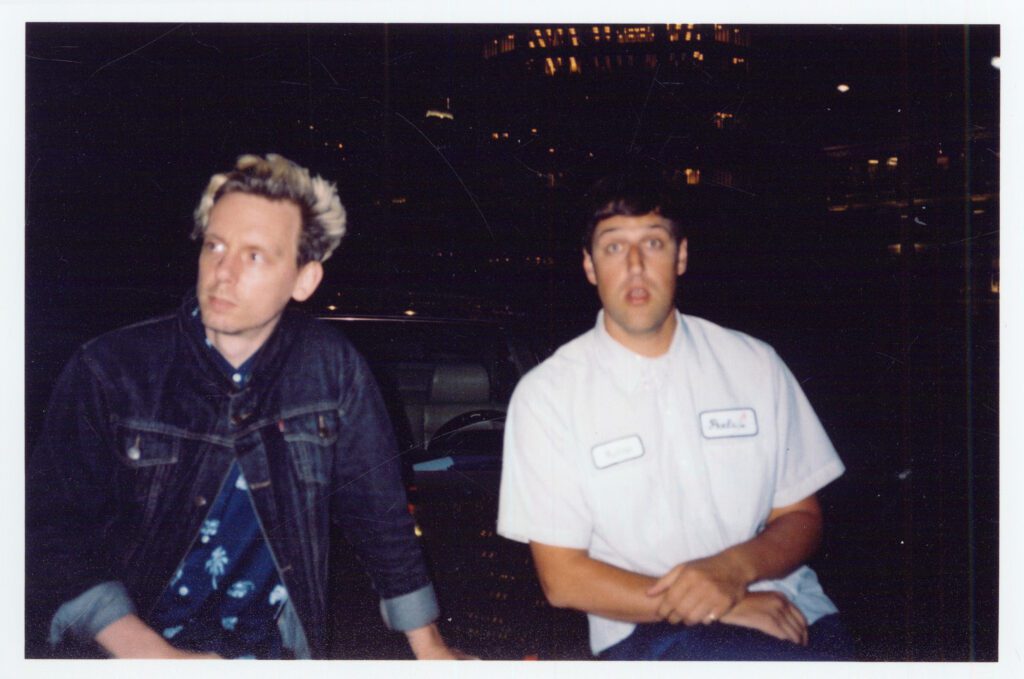
Peter Ricq and Robbie Slade, the Canadians behind indie-electronic act Humans, are back. The band’s latest single “Let Go,” a previously unreleased song from the sessions that produced their 2018 LP Going Late, features their signature mix of electronic soundscapes and Slade’s tactile, chill-wave vocals. It’s a more subtle form of their usual club-ready fare, a song meant for clandestine camaraderie under diffused lights.
The single features fellow Canadian musician Cayley Thomas, a collaboration that the band’s producer Nik Kozub (Noontide, The feels EP, Water Water, and Going Late LP) brought in. The song takes a full minute to boil: Slade’s voice enters the scene around the one minute mark, Thomas following suit around four minutes in. “Enjoy your life/And hold your breath for a minute/We’re gonna roll/If you’ve a car, go get in it/We’ll take a ride, but make sure there’s room for two,” Thomas sings sullenly, giving off the aura of the cool art school chick smoking a blunt on the back porch of a party. The conversation between her and Slade is like a dance down a narrow hallway, tightly wound with little release.
It’s a single that Humans fans could easily imagine playing very differently on stage. The duo is known for their live sets, shows where the often subtle nature of their work spirals out from itself – beats deepening, patterns fracturing, creating a kaleidoscope performance that reverberates with richer color and sound with every loop. It’s an aspect of the band that makes every single feel like a first date, and the show itself third base.
“Our whole writing style has been a bit of a gut feeling,” Slade says of Humans’ creative process.
“At first it was really to engage with the crowd and get people dancing and then we started experimenting more, doing really long songs. We’re both into songs that are over ten minutes; we’re always trying to make the longest [song] possible,” Ricq says.
The two musicians met in 2008, at Ricq’s art show at Ayden Gallery in Vancouver. Ricq and Slade immediately bonded over a love of male voices singing in falsetto. After that meeting, Ricq moved to Vancouver and Humans was born. Much of their early work centered around Ricq’s upbringing as the child of French and German parents.
“French people are very sad and romantic. Like low-key Russians,” Slade laughs.
“Robbie was like, ‘What do you want to write about? Tell me a story about one of your family members,’ and I was like ‘Okay, let’s go’,” Ricq recalls.
Both musicians took up an interest in music at an early age. Ricq reluctantly learned piano, but once he started creating his own music, he found himself at the keys with no need for pushing. For Slade, it was a similar story; he was trained in singing from a very young age, but took little interest in it until one night at a party with his parents.
“One of my friend’s moms had this [party] – and you know when you look back on it and you think, ‘Those adults were super wasted’ but you didn’t know it at the time? I didn’t know it at the time. Someone pulled out a bunch of home hardware, these large buckets, and everyone started a drum circle. Everyone was losing their minds. My friend Gavin, his mom Bonnie was doing spoken word and I was like, this is the most lit thing I’ve seen in my life,” Slade remembers. It was the kind of party that Humans would later replicate in their live shows, a feeling of natural progression, of improvisation within a theme.
The band usually tackles an 8-16 bar idea, then builds everything around it. “Let Go” was written in an hour or two in the studio, then Thomas came in for an hour of vocals.
“Now, because we’re old, we’re totally cool with the idea that whatever you have in mind may fundamentally change when you go through that process,” Slade says. “I miss working in the studio; it’s a great little corner of everyone’s brain. I think everyone should write an album.”
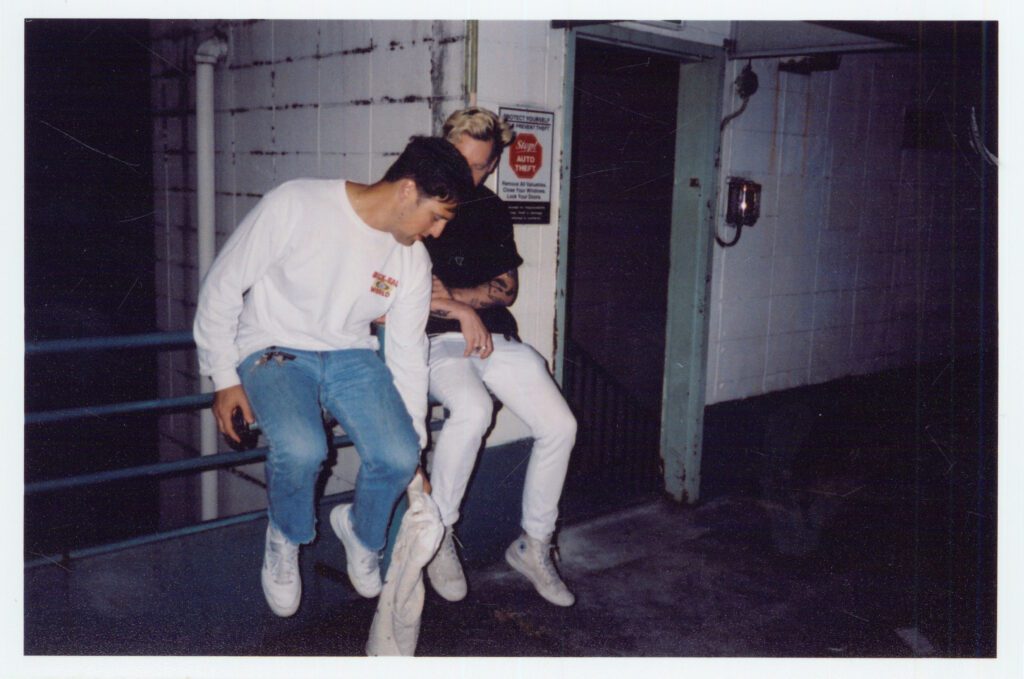
In addition to Humans, the duo has been at work on some side projects (Ricq will release some singles this summer from a forthcoming album he’s putting finishing touches on with his band Gang Signs; Slade released an EP with his band Sabota last year). But the musicians also stretch themselves in other creative directions. Ricq published a children’s book called Ghosts are People Too, full of creepy illustrations sure to delight the most devious of toddlers; he also composed the score for the theatrical motion picture Dead Shack in early 2018 under the Humans moniker.
“If we had just focused on Humans, Humans would have been a lot bigger. We kind of fucked up,” Ricq jokes. “But us doing these other projects, I think we’ve made Humans better.”
“I agree with that. Maybe now we should drop everything else and just focus on Humans,” Slade says. The duo is at an impasse of sorts; Slade is moving back to his hometown, a small hamlet in British Columbia, to renovate a house for his young family. Ricq dryly jokes that he should “drop the baby” so they can return to Vancouver together. But he’s got plans of his own to spend eight months of the year in Bali with his girlfriend, who runs a handbag business on the island. Slade says he wasn’t aware of that, but it’s hard to tell if he’s being sarcastic.
Humans has always been a passion project for the pair, each music video ornate and detailed in its scope. It took quite a few iterations to find the visuals that now define Humans’ style, but there’s always been a vein of hedonism running through the project. For instance, they named their 2015 album Noontide, which was the name of Ricq’s first band and “means you’re at the peak of elevated happiness,” he explains. The band’s red-eyed Cyclops logo, with long fingers covering its mouth, was inspired by a tic of Slade’s: when he gets excited he wiggles his fingers over his face.
“Right now we’re taking it really easy and if we have the money we will record new stuff,” Ricq says. “That’s why I’m trying the NFT game, because it’s been successful for some artists. I’m hoping that it will help us to get back into the studio.” He’s referring the band’s latest NFT offering – the single was made available as an early download with NFT purchase on Rarible. Ricq likes that the money raised from NFTs goes directly to the artists, bypassing labels and corporations. “Robbie and I, we’ve always tried to try new things: our light setup when we play live, the gear that we use, the music videos we’ve done. We’re always trying to do new things, but it doesn’t always work.” Fans will be happy to learn that Ricq is hard at work on a new custom jacket for the single; each piece is usually one of only 30 or 50 made.
In the meantime, Slade has a new Gibson J-45 and is planning on building a studio in the backyard of his new home. “We wrote a lot of early stuff on the guitar and I feel like you could come over, Pete, and I’d say ‘Check out all these tunes’ and you’d be like ‘oh my god!'”
“Let Go” is a little piece of the band’s past, a digital polaroid of where they once were. Both musicians are focused on the here and now, exploring new aspects of their lives, and driving in different directions for a while. The line “All you’ve gotta know is when to let go” repeats like a mantra for reckless abandon, but there’s no doubt that Humans still have their hands on the wheel.
Follow Humans on Instagram and Facebook for ongoing updates.

